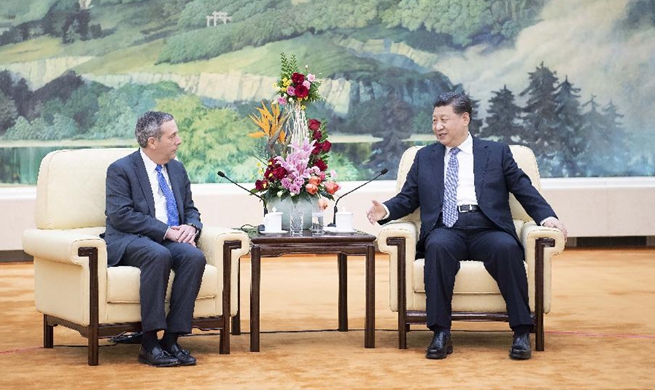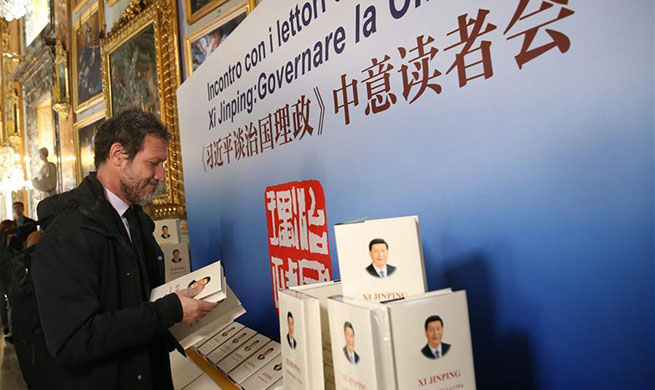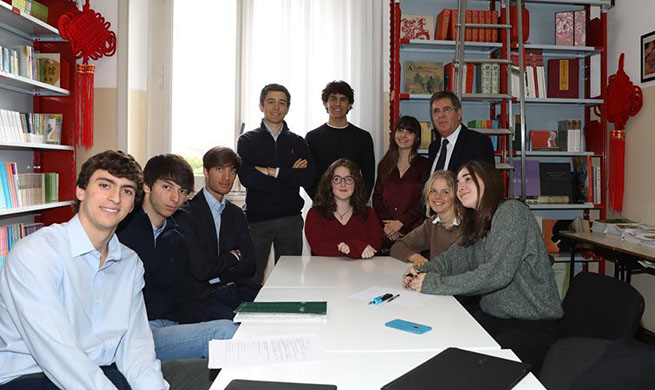BERLIN, March 21 (Xinhua) -- The heads of BMW, Daimler and VW came to an agreement about a common approach to electric mobility during a telephone conference on Wednesday evening, a spokesperson for the German Association of the Automotive Industry (VDA) confirmed to Xinhua on Thursday.
The VDA spokesperson said the company executives' discussion was short but constructive and "a common position was reached." The details of the agreement would now be worked out, according to the VDA.
Speaking to Xinhua, a Volkswagen spokesperson confirmed that the discussion was constructive and that "it was agreed that there will be no equivalent or equivalent alternative to electric mobility for at least the next decade".
"The central prerequisite for the success of electric vehicles is a well-developed and easily accessible charging infrastructure," the Volkswagen spokesperson added.
The telephone conference, which also involved VDA President Bernhard Mattes, was initiated after the car makers presented different visions for the future of electric vehicles in Germany's automotive industry.
While BMW, VW and Daimler all agreed that the German government should subsidize the expansion of electric mobility, VW has outlined more ambitious plans recently.
Herbert Diess, CEO of Volkswagen, has called for all subsidy instruments to be concentrated exclusively on battery-powered vehicles in the future. VW is also planning to convert three of its German production plants into full electric vehicle factories, Diess said at VW's annual conference.
In contrast, BMW and Daimler are focusing their attention on hybrid vehicles. BMW is planning to convert its existing production plants so that combustion engines, hybrids and electric cars can all roll off the same production line.
For this reason, BMW CEO Harald Krueger disagreed with VW's focus on subsidizing electric cars and emphasized the importance of "open technology" in the design of subsidies from the German government.
German politicians from the governing coalition have been similarly divided on the future of mobility. German Transport Minister Andreas Scheuer (CSU) sided with BMW when he advised the German government against committing itself to one specific technology.
In contrast, Economy Minister Peter Altmaier (CDU) would like to see Germany become a global leader in the production of battery cells. To this end, he has recently made 1 billion euros (1.14 billion U.S. dollars) available to support the construction of a battery cell factory in Germany.
The dialogue between the car industry and politicians in Germany over the future of electric mobility could begin once the details of the agreement reached by the leaders of VW, BMW and Daimler have been worked out, the VDA spokesperson said. The discussions will focus on the "expansion of charging infrastructure" and "corresponding funding frameworks" in Germany.













